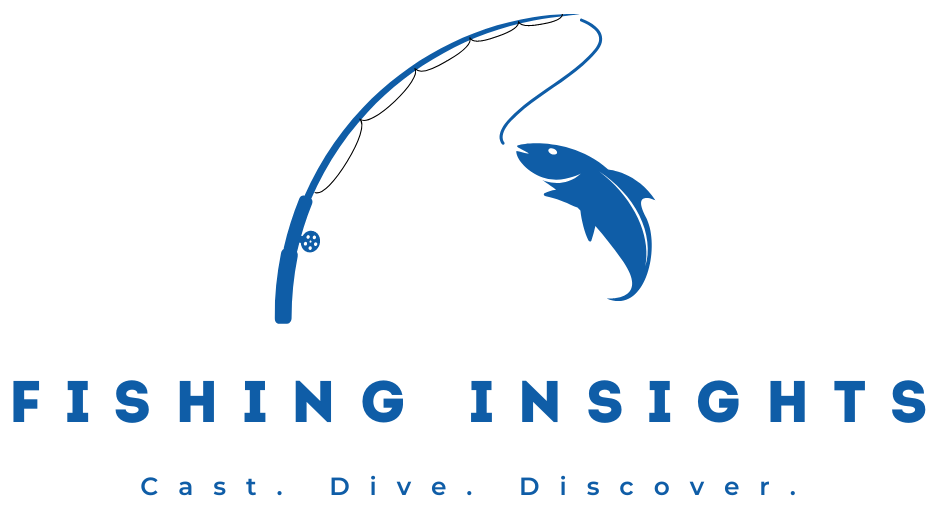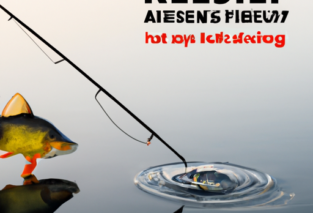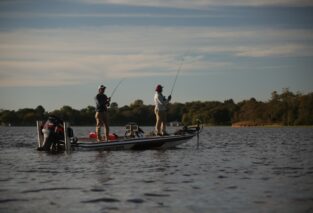Are you a beginner in the world of fishing and eager to learn how to fish off piers and jetties? Look no further! “Fishing Off Piers and Jetties: Top Tips for Beginners” is the ultimate guide that will set you up for success. Whether you’re looking to enjoy a peaceful day by the water or hoping to reel in your very first catch, this comprehensive resource is packed with expert advice and insider tips to help you make the most of your fishing adventure. From selecting the right equipment to mastering the art of casting, this guide will equip you with everything you need to know to get started. So grab your fishing rod and get ready to embark on an exciting journey into the world of fishing off piers and jetties!
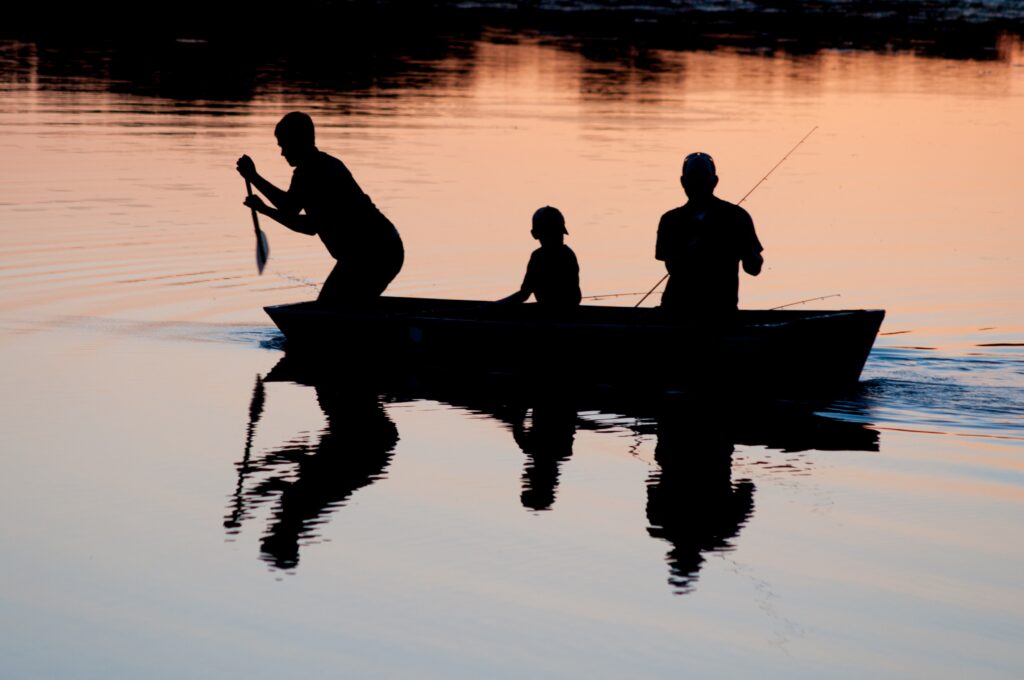
Choosing the Right Equipment
Research Different Types of Fishing Gear
When it comes to fishing off piers and jetties, having the right equipment can make all the difference in your success. Take some time to research and familiarize yourself with the different types of fishing gear available. There are several factors to consider, including the type of fish you want to catch, your skill level, and the fishing conditions you’ll be facing.
Consider the Type of Fish You Want to Catch
Before heading out to the pier or jetty, it’s important to consider the type of fish you want to catch. Different species of fish require different types of gear and bait. For example, if you’re targeting larger fish, you’ll need heavier gear and stronger lines. On the other hand, if you’re going after smaller fish, you can use lighter gear and lines. Understanding the habits and preferences of the fish you’re targeting will help you choose the right equipment.
Select the Appropriate Fishing Rod and Reel
Choosing the right fishing rod and reel is crucial for a successful pier or jetty fishing experience. When selecting a rod, consider factors such as length, action, and power. Longer rods are generally better for casting longer distances, while shorter rods provide more control. As for the reel, make sure it’s suitable for the type of fishing you’ll be doing and can handle the size of fish you’re targeting.
Choose the Right Fishing Line
The fishing line you use can greatly impact your fishing success. There are different types of fishing lines available, such as monofilament, fluorocarbon, and braided lines. Each has its own unique properties, so it’s important to choose one that suits your fishing needs. Consider the strength, visibility, and sensitivity of the line when making your selection.
Bring Essential Fishing Accessories
To ensure a smooth and enjoyable fishing trip, don’t forget to bring along some essential fishing accessories. These may include a tackle box or bag to store your gear, a landing net to help you safely land your catch, a fishing knife for cleaning fish, and a fish grip or gloves to handle your catch. Additionally, it’s always a good idea to carry a first aid kit, sunscreen, and plenty of water to stay hydrated.
Understanding Fishing Regulations
Familiarize Yourself with Local Fishing Regulations
Before you start fishing off a pier or jetty, it’s important to familiarize yourself with the local fishing regulations. Each area may have its own set of rules and restrictions, including fishing seasons, catch limits, and size restrictions. These regulations are in place to protect the fish populations and ensure sustainable fishing practices. Ignoring these rules can result in fines and harm the ecosystem.
Obtain the Necessary Fishing Licenses or Permits
In many jurisdictions, fishing off piers and jetties requires a valid fishing license or permit. Make sure to check the local regulations regarding fishing licenses and obtain the necessary permits before heading out. It’s a simple step that ensures you’re fishing legally and supporting conservation efforts.
Check for any Size or Bag Limit Restrictions
In addition to having the proper fishing licenses or permits, it’s crucial to know the size and bag limits for the fish you’re targeting. These restrictions specify the minimum and maximum sizes of fish that can be caught and the maximum number of fish that can be kept per person. Adhering to these limits helps preserve fish populations and ensures the sustainability of the fishery.
Follow Conservation Rules and Practices
Conservation should always be a priority when fishing off piers and jetties. Conservation rules and practices such as catch and release can help protect the fishery and ensure future generations can enjoy fishing too. It’s important to handle fish with care, minimize handling time, and release any undersized or protected species back into the water unharmed.

Identifying Suitable Fishing Locations
Consider the Structure of the Pier or Jetty
When choosing a fishing location on a pier or jetty, consider the structure itself. Look for sections of the pier or jetty that extend further out into the water, as these areas tend to have better access to deeper waters where fish are more likely to be found. Pay attention to any structural features such as pilings, rocks, or submerged structures, as they can create hiding spots for fish.
Look for Areas with Good Water Movement
Fish are highly responsive to water movement, so it’s important to choose fishing locations with good water movement. Look for areas where the water is flowing, such as near currents, inlets, or areas where tidal movements create turbulence. These areas often attract baitfish and, in turn, larger predatory fish.
Seek Out Locations with Underwater Structures
Underwater structures, such as reefs, rocks, or vegetation, provide shelter and feeding opportunities for fish. These structures create a productive habitat and attract a wide variety of fish species. When fishing off piers and jetties, try to locate areas near these underwater structures for better chances of catching fish.
Observe Bird Activity as an Indicator of Fish
Birds are excellent indicators of fish presence. When fishing off piers and jetties, keep an eye out for bird activity. If you notice birds diving or feeding on the water, it’s a good sign that there are fish in the area. Birds are often drawn to schools of baitfish, which attract larger game fish.
Learning Basic Fishing Techniques
Practice Casting Skills
Casting is an essential skill for pier and jetty fishing. Take the time to practice your casting technique before heading out to the pier or jetty. Pay attention to your timing, release, and accuracy. With practice, you’ll be able to cast your bait or lure to the desired spot, increasing your chances of attracting fish.
Master Proper Baiting Techniques
Proper baiting techniques are crucial to attract fish effectively. Whether you’re using live bait or artificial lures, learn the proper way to hook your bait to maximize its appeal to fish. Consider using a variety of baiting methods to see which ones work best for different fish species and fishing conditions.
Understand Different Fishing Methods
There are various fishing methods you can employ when fishing off piers and jetties. Some common methods include bottom fishing, jigging, surfcasting, and trolling. Each method requires a different approach and understanding the specific techniques can greatly improve your chances of success.
Learn How to Set the Hook and Reel in Fish
Setting the hook and reeling in a fish are crucial moments in the fishing process. Practice setting the hook with the right amount of force to ensure a good hookset. Once you’ve hooked a fish, maintain tension on the line and use proper reeling techniques to bring the fish in smoothly and avoid losing it.
Practice Catch and Release Techniques
If you’re not planning to keep every fish you catch, it’s essential to learn and practice proper catch and release techniques. This includes handling the fish with care, minimizing stress, and returning it to the water unharmed. Using barbless hooks and avoiding excessive handling can greatly increase the chances of survival for released fish.
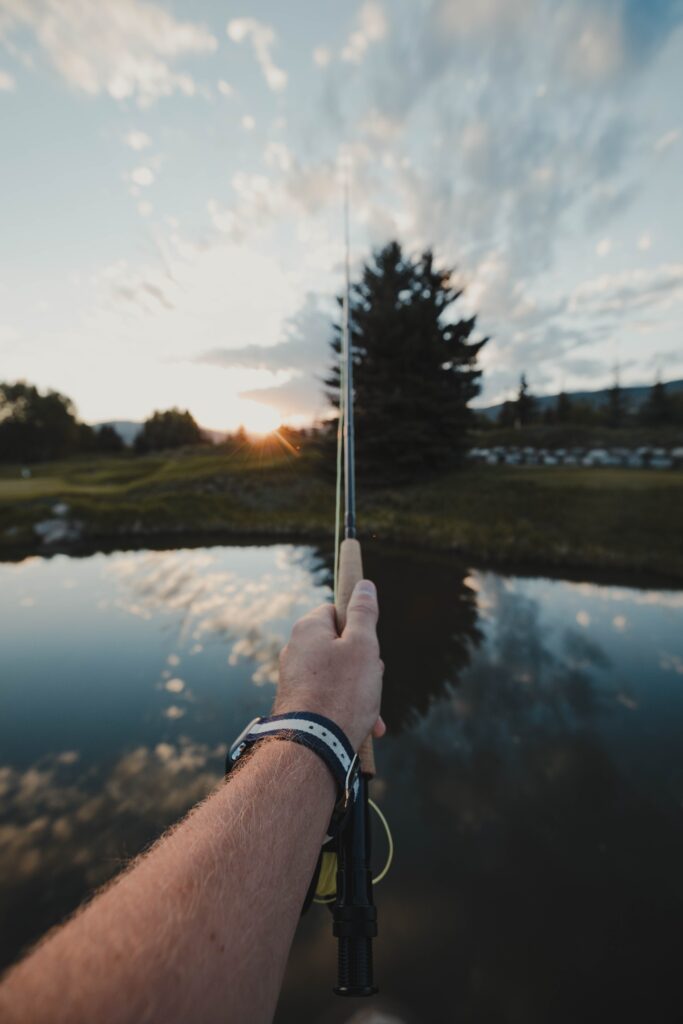
Choosing the Right Bait and Lures
Research Bait Preferences of Targeted Fish Species
Different fish species have their own bait preferences. Research the type of fish you’re targeting and their preferred food sources. This will help you choose the right bait that closely resembles the natural food of the fish you’re trying to catch. Whether it’s live bait, such as shrimp or minnows, or artificial lures that mimic the movements of prey, selecting the right bait is crucial for enticing fish to bite.
Use Natural Baits such as Live or Cut Fish
Natural baits, such as live or cut fish, can be highly effective when fishing off piers and jetties. Many predatory fish are attracted to the scent and movement of live or freshly cut baitfish. Depending on the regulations in your area, you may be able to catch your own baitfish or purchase them from a local bait shop.
Experiment with Artificial Lures
Artificial lures are another popular option for pier and jetty fishing. They come in a variety of shapes, sizes, and colors, each designed to mimic different types of prey. Experiment with different lures to find the ones that work best for the fish you’re targeting and the fishing conditions you’re facing. Pay attention to factors like lure action, depth, and retrieval speed to increase your chances of success.
Consider Using Attractants
In addition to bait and lures, attractants can enhance your fishing success. Attractants are substances that are applied to bait or lures to enhance their appeal to fish. They often emit scent or flavor that can attract fish from a distance. Research and experiment with different attractants to see which ones work best for the fish species you’re targeting.
Adapt Bait Selection to Changing Conditions
As fishing conditions change throughout the day or season, it’s essential to adapt your bait selection accordingly. Some fish species may be more active during certain times or more attracted to specific types of bait under different conditions. Stay observant and be willing to switch up your bait choices to increase your chances of catching fish.
Understanding Tides and Weather Patterns
Study Tide Charts and Current Patterns
Tides play a significant role in fish behavior and feeding patterns. Studying tide charts and understanding tidal movements can greatly improve your chances of success when fishing off piers and jetties. Fish tend to be more active during certain phases of the tide, such as incoming or outgoing. By aligning your fishing trips with these optimal tide times, you’ll increase your chances of catching fish.
Learn How Tidal Movements Affect Fish Behavior
Tidal movements affect the distribution and behavior of fish. During high tide, fish may move closer to the pier or jetty to take advantage of the increased water levels and access to food. During low tide, they may retreat to deeper waters or seek shelter near underwater structures. Understanding how tidal movements influence fish behavior can help you plan your fishing strategy accordingly.
Consider Weather Conditions and Their Impact
Weather conditions have a significant impact on fish activity. Factors such as temperature, wind, and cloud cover can all affect where and how fish feed. As a general rule, some fish species tend to be more active in cloudy or overcast conditions, while others prefer bright and sunny days. By considering the current weather conditions, you can adapt your fishing techniques and bait choices to match the preferences of the fish.
Adjust Fishing Tactics Based on Tides and Weather
Integrating your knowledge of tides and weather patterns into your fishing tactics is key to success. For example, during low tide, when fish may be less active, you can target deeper sections close to the pier or jetty. On windy days, consider casting into wind-blown areas where baitfish may gather, attracting larger predatory fish. By paying attention to these factors, you can increase your chances of hooking into a fish.
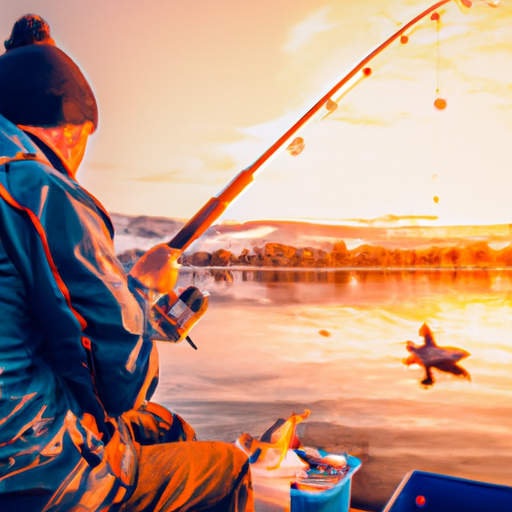
Knowing When and Where to Fish
Fish During the Optimal Time of Day
Different fish species are more active at specific times of the day. Generally, dawn and dusk tend to be prime feeding times for many fish. During these periods, fish are more likely to be actively searching for food, making it an ideal time to cast your line. However, don’t limit yourself to just these times. Depending on the fish species and local conditions, fish can be caught throughout the day.
Target Specific Fish Species for Different Seasons
Fish populations can vary throughout the year due to migration and spawning patterns. Some fish species may be more prevalent during certain seasons, while others may become less active. Research the seasonal patterns of the fish species you’re targeting to increase your chances of success. This knowledge will help you focus your efforts on the right fish species during each season.
Look for Signs of Fish Activity
Being observant and looking for signs of fish activity can greatly improve your fishing success. Keep an eye out for things like fish breaking the surface, birds diving, or even small ripples on the water. These signs often indicate the presence of fish below the surface. Paying attention to these indicators will help you identify where the fish are and increase your chances of catching them.
Experiment with Different Depths and Casting Distances
Fish can be found at different depths and distances from the pier or jetty. Experimenting with different casting distances and depths can help you locate the fish. Some fish species may be suspended at a certain depth, while others may be closer to the bottom. By varying your casts and adjusting your bait or lure presentation, you can increase your chances of enticing fish at different depths.
Maintaining Safety at the Pier or Jetty
Observe Safety Fencing and Warning Signs
Safety should always be a top priority when fishing off piers and jetties. Take the time to familiarize yourself with the safety features of the pier or jetty, such as safety fencing and warning signs. These are in place to protect visitors from potential hazards. Always abide by these safety measures and avoid restricted areas to ensure a safe and enjoyable fishing experience.
Wear Appropriate Protective Gear
Protective gear is essential when fishing off piers and jetties. Wear appropriate footwear with good traction to prevent slips and falls on wet or slippery surfaces. Additionally, consider wearing a hat and applying sunscreen to protect yourself from the sun’s harmful rays. Taking these precautions will help prevent accidents and ensure your safety while enjoying your fishing adventure.
Be Mindful of Slippery Surfaces
Piers and jetties can become slippery due to water splashes or algae growth. Always be mindful of your footing and avoid rushing or making sudden movements. Take extra caution when walking on wet or uneven surfaces. If the pier or jetty becomes too slippery, it’s best to move to a safer location or consider fishing another day.
Avoid Crowded Fishing Areas
Fishing off piers and jetties can be popular, especially during peak fishing seasons. To maintain a safe and enjoyable experience, it’s best to avoid crowded fishing areas. Overcrowded spaces can increase the chances of accidents, tangling lines, or conflicts with other anglers. Give yourself plenty of space to cast and avoid fishing too close to others to ensure everyone can fish comfortably.
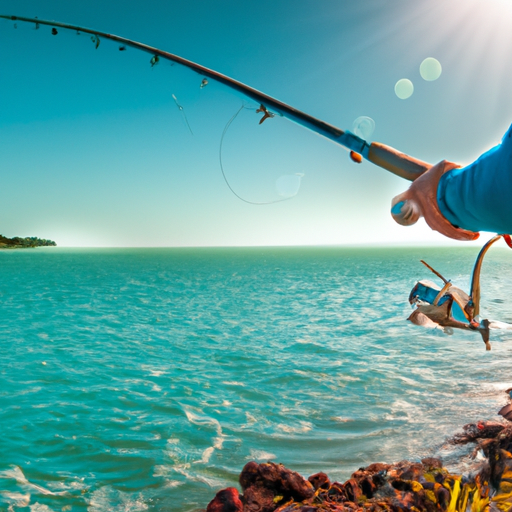
Interacting Respectfully with Others
Practice Good Fishing Etiquette
When fishing off piers and jetties, it’s important to practice good fishing etiquette. Be courteous to fellow anglers and respect their fishing space. Avoid casting over or near other fishermen and always give them plenty of room. Keep noise levels to a minimum and be mindful of others’ fishing lines. Practicing good fishing etiquette helps create a positive and enjoyable atmosphere for everyone.
Respect the Space and Equipment of Fellow Anglers
Respecting the space and equipment of fellow anglers is crucial for a harmonious fishing experience. Be mindful of others’ fishing lines and avoid tangling with them. If someone is already occupying a spot, choose a different spot nearby rather than crowding them. Treat others’ fishing equipment with care and avoid touching or moving it without permission.
Follow Pier or Jetty Rules and Regulations
Piers and jetties often have specific rules and regulations in place to ensure everyone’s safety and enjoyment. Take the time to familiarize yourself with these rules and abide by them when fishing. Some common rules may include restrictions on alcohol consumption, fishing hours, and the use of certain types of gear. Following these rules shows respect for the pier or jetty management and fellow anglers.
Be Patient and Considerate
Fishing requires patience, and it’s important to remain patient and considerate when fishing off piers and jetties. Avoid rushing or becoming frustrated if the fish aren’t biting. Remember that everyone is there to relax and enjoy their time on the water. Be kind, offer assistance if needed, and maintain a positive attitude. Fishing is much more enjoyable when everyone is patient and considerate towards one another.
Learning from Experienced Anglers
Engage with Locals and Regular Anglers
One of the best ways to improve your fishing skills is by engaging with locals and regular anglers. Strike up a friendly conversation with fellow fishermen on the pier or jetty. They have valuable knowledge and insights about the area, the fish species, and effective fishing techniques. Don’t hesitate to ask questions and learn from their experiences.
Ask for Advice and Tips
Experienced anglers have a wealth of knowledge and are often more than willing to share their tips and advice. Don’t be afraid to ask for advice or tips on fishing off piers and jetties. Whether it’s about the best time to fish, the most effective bait, or the preferred fishing techniques, the advice from experienced anglers can greatly enhance your fishing skills.
Learn From Observing Others
Observation is a valuable learning tool. Take the time to observe other anglers on the pier or jetty and pay attention to their techniques and strategies. Notice how they cast, retrieve their bait or lure, and handle their catch. You can pick up valuable insights and incorporate them into your own fishing approach.
Join Fishing Communities or Clubs
Joining fishing communities or clubs is a fantastic way to connect with like-minded individuals and expand your knowledge. These communities often organize fishing trips, share tips and techniques, and provide a platform for asking questions and seeking advice. By joining these clubs or communities, you can develop lasting friendships and continually learn from experienced anglers.
Fishing off piers and jetties provides a unique and accessible fishing experience for beginners. By choosing the right equipment, understanding fishing regulations, identifying suitable fishing locations, learning basic fishing techniques, choosing the right bait and lures, understanding tides and weather patterns, and knowing when and where to fish, you can enhance your chances of a successful and enjoyable fishing adventure. Remember to prioritize safety, interact respectfully with others, and learn from experienced anglers. With practice and knowledge, you’ll become a proficient angler, reeling in the thrill of fishing off piers and jetties.
